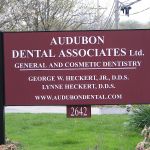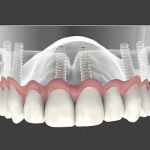Is NHS Dentist Free? Understanding NHS Dental Care and Costs
As someone who has utilized both NHS and private dental services in the UK, I know that the question of whether NHS dentistry is free often comes up. Many people assume that all NHS services, including dental treatments, are free of charge. While some dental services are indeed free, the reality is a bit more complicated. Let’s take a closer look at how NHS dental care works, which treatments are free, and when you might need to pay for your visit.
1. What is NHS Dentistry?
To understand whether NHS dentistry is free, it’s important to first define what NHS dental care is. The National Health Service (NHS) provides publicly funded healthcare to UK residents. NHS dental services are available through NHS contracts with private dentists, and they aim to make essential dental treatments accessible to everyone at affordable prices. NHS dentists offer a wide range of services, including check-ups, fillings, extractions, and more specialized procedures like root canals.
1.1 The Purpose of NHS Dentistry
The purpose of NHS dentistry is to provide affordable dental care to the public, with priority given to essential treatments. The NHS aims to prevent dental problems and maintain good oral health at a reasonable cost. However, not all services are covered, and charges may vary based on the type of treatment and the patient's circumstances. The NHS dental system is designed to ensure that everyone has access to basic care, regardless of their financial situation.
2. When is NHS Dental Care Free?
While NHS dentistry isn’t entirely free, there are certain circumstances in which you may not have to pay for dental care. These circumstances depend on your age, income, and medical situation. For example, children under the age of 18 (or under 19 if they are still in full-time education) are entitled to free NHS dental care. Pregnant women and those who have had a baby within the last 12 months can also access free dental treatment.
2.1 Free NHS Dental Care for Children and Young Adults
If you have children, you may be pleased to know that NHS dental care is free for those under 18, and under 19 if still in full-time education. This applies to regular check-ups, fillings, and other necessary dental treatments. It's worth noting that this free service is available to all children in the UK, regardless of family income, ensuring that everyone has access to essential oral health care from a young age.
2.2 Free NHS Dental Care for Pregnant Women and New Mothers
Another group eligible for free NHS dental care are pregnant women and new mothers. If you're expecting a child or have had a baby in the past year, you’re entitled to free dental services. This is part of the government’s effort to ensure that mothers and children are well taken care of, particularly during the important stages of pregnancy and early motherhood when oral health can be more vulnerable.
3. When Do You Need to Pay for NHS Dentistry?
While some people are eligible for free NHS dental care, many will need to pay for their treatment. NHS dental charges are categorized into three bands, with Band 1 being the least expensive and Band 3 being the most expensive. The charges depend on the complexity of the treatment provided. Here’s a breakdown of the NHS dental bands:
3.1 NHS Band 1
Band 1 covers a basic dental examination, advice on oral hygiene, and preventive advice. It also includes an assessment of any necessary treatments, such as fillings or extractions. This band is the cheapest and includes your regular dental check-up. The cost of Band 1 treatment is set at a fixed price and is designed to cover a simple consultation and diagnostic services.
3.2 NHS Band 2
Band 2 treatments include everything in Band 1, plus more complex procedures like fillings, extractions, and the removal of soft or hard tissue. If your dentist finds you need additional dental treatments, this band would apply. The cost of Band 2 services reflects the increased complexity of the procedures performed compared to Band 1.
3.3 NHS Band 3
Band 3 is the most expensive category, covering more complicated dental work such as crowns, dentures, and bridges. These types of treatments require more time and resources, which is reflected in the higher cost. If you're undergoing extensive restorative work, you can expect to pay for a Band 3 treatment.
4. How to Check if You Qualify for Free NHS Dental Care
If you're unsure whether you qualify for free NHS dental care, there are a few things you can do. First, check your age, pregnancy status, and any other medical conditions that might make you eligible for free treatment. The NHS provides an easy online eligibility checker for those who are unsure of their status. Additionally, if you’re on a low income or receive certain benefits, you may be entitled to free or reduced-cost NHS dental care. You can check your eligibility on the official NHS website or ask your dentist about payment options.
4.1 NHS Low Income Scheme
If you’re on a low income, you might qualify for the NHS Low Income Scheme, which can reduce the cost of your dental treatments. This scheme is designed to help people who cannot afford the full cost of NHS services, and it provides discounts based on your income and circumstances. To apply, you’ll need to complete an application form and submit proof of your income.
5. Tips for Saving on Dental Care
If you don’t qualify for free NHS dental care and you’re concerned about costs, there are ways to reduce your dental expenses. One option is to maintain good oral hygiene and avoid costly dental procedures by visiting your dentist regularly for check-ups and cleanings. Preventive care, like brushing and flossing daily, can help you avoid needing expensive treatments later on.
5.1 Look for Dental Plans and Discounts
Another way to save on dental care is to look for dental plans or discount programs. Some organizations offer dental plans that provide discounted services for a fixed monthly fee. These programs can be particularly useful for families or individuals who don’t have dental insurance. Many plans offer savings on both routine and major dental procedures, making it easier to manage the cost of dental care.
5.2 Take Advantage of NHS Dental Check-Ups
Lastly, make sure to take advantage of any free NHS dental check-ups or preventive care available to you. Routine visits to the dentist can help you catch potential issues before they become serious and costly. By maintaining regular dental visits, you may be able to avoid the need for more expensive treatments down the road.







 Rollins & Petersen Orthodontics4.0 (348 review)
Rollins & Petersen Orthodontics4.0 (348 review) Audubon Dental Associates Ltd5.0 (6 review)
Audubon Dental Associates Ltd5.0 (6 review) Doc Bresler's Cavity Busters4.0 (363 review)
Doc Bresler's Cavity Busters4.0 (363 review) Smileawhile Dental4.0 (159 review)
Smileawhile Dental4.0 (159 review) Montclair Perio & Implant Specialists: Anne Hartnett, DDS0.0 (0 review)
Montclair Perio & Implant Specialists: Anne Hartnett, DDS0.0 (0 review) Dr. Shubha Soni-Gaur5.0 (1 review)
Dr. Shubha Soni-Gaur5.0 (1 review) The Importance of Oral Health Education During Pregnancy for a Healthy Pregnancy
The Importance of Oral Health Education During Pregnancy for a Healthy Pregnancy Best Tips for Brushing Your Teeth Properly for Healthy Gums: Essential Techniques for Oral Health
Best Tips for Brushing Your Teeth Properly for Healthy Gums: Essential Techniques for Oral Health Why Skipping Dental Checkups Can Lead to Bigger Oral Health Problems
Why Skipping Dental Checkups Can Lead to Bigger Oral Health Problems Advantages of Porcelain Dental Restorations
Advantages of Porcelain Dental Restorations How Can Diabetes Cause Tooth and Gum Problems? Preventing and Managing Oral Health Issues
How Can Diabetes Cause Tooth and Gum Problems? Preventing and Managing Oral Health Issues Healthy Habits for Promoting Good Oral Health and Hygiene: Tips for a Healthy Smile
Healthy Habits for Promoting Good Oral Health and Hygiene: Tips for a Healthy Smile